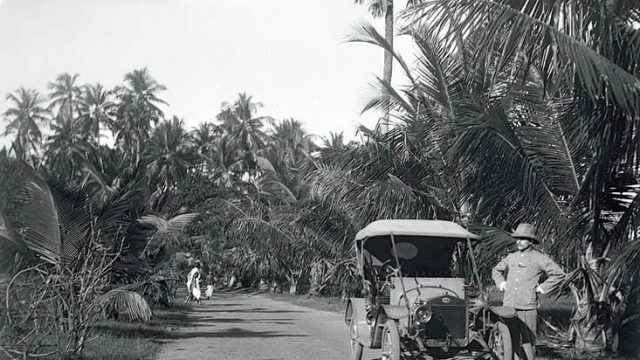In 1982, when Michel Fortini had just enrolled in a prestigious photography school in Arles, his grandfather Luc Franceschi took him to Centuri, a seaside village in Corsica, where he gifted him an attic-full of neatly stacked glass negatives. These were visual dispatches of the travels and everyday life of their ancestor Mathieu Micheli, who lived in the erstwhile French colony of Pondicherry in 1910. The pictures are enthusiastic documents of a quotidian reality, not so different from what a contemporary Micheli would post on a social networking site. All the portraits of him show Micheli consistently smartly hatted-and-suited, regally borne aloft a hand-pulled rickshaw by a sinewy native, or standing smartly beside his motorcar on the street. There are also numerous pictures of life in the colony: of processions streaming down the street, of the locals gathered before their huts, of dockworkers stacking cargo by the sea.
All of these images went on view right where they were taken, in the exhibition ‘Pondichéry 1910’, which was held last month at the Alliance Française in Pondicherry. You’ll also find references to them in Fortini’s current work, a meditation on time and memory inspired by his ancestor’s “simplicity of vision and direct documenting style”. “My ancestor’s photographs are those of an amateur photographer and witness of day-to-day life during his time,” says Fortini. “They are neither more nor less than just the basis of a reflection on memory. Both of us lived and worked in Pondicherry, and produced our photographic memoirs here. So you can expect to see a comparison of images from 1910 with those that I have photographed now and the perception I have of this city.”




